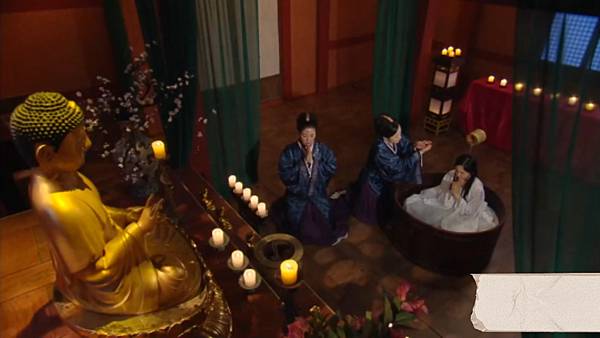
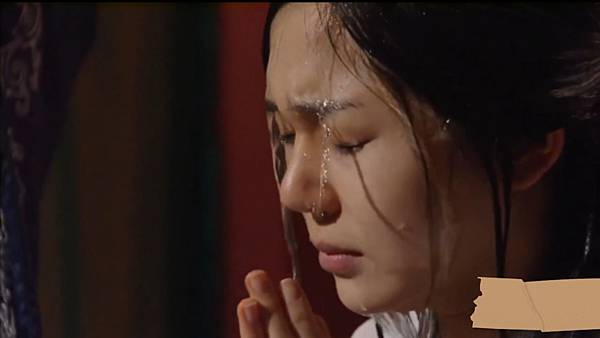
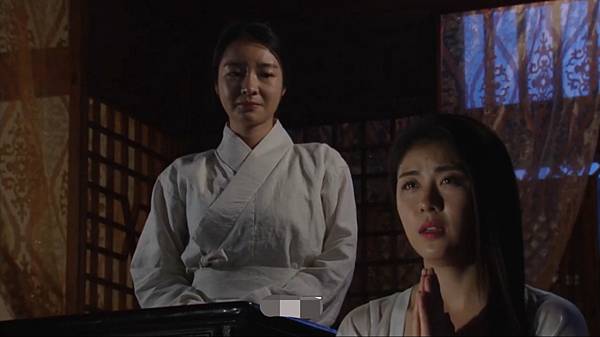
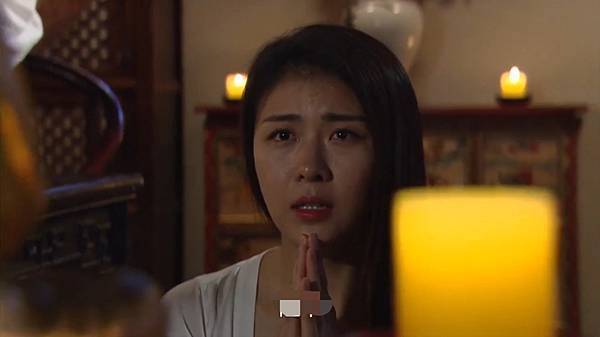
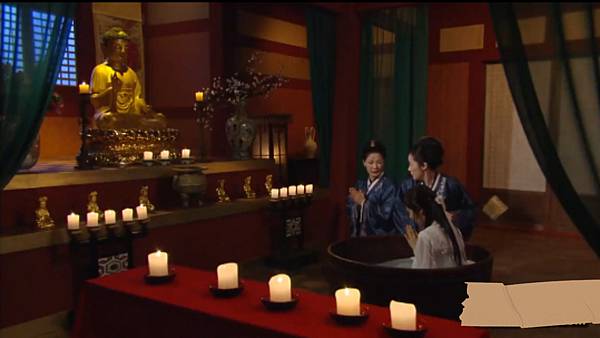
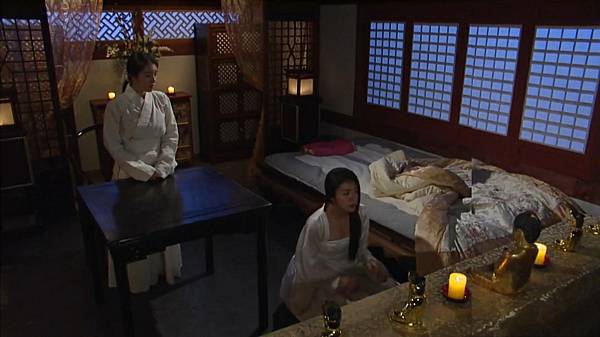
Master Miao-Lien
Once upon a time, there was a temple where four little monks and an old Venerable Master cultivated. The Venerable Master saw the differences in the nature and character of the little monks, and thus preached the Dharma differently to each of them so that they could cultivate appropriately.
The first little monk was very honest and ingenuous, so the old Master told him, "You should chant the Buddha's name, prostrate to
the Buddha, memorize Sutras and meditate in a lotus position. If you cultivate diligently, you will reach Buddhahood. Your parents sent you here to live the monastic life, so you must understand that 'when one becomes a monk, one's nine extended families will transcend to
higher realms'; only in that way will you be able to repay your parents' and teachers' love and care. If you are not able to accomplish the goals of your cultivation, you will be unable to repay your parents and teachers, and you will also be unable
to repay the Three Treasures for the food and care that the temple gives you." The young monk listened to the old Master and said,"I
will do as you teach!"
The second little monk was very restless; he was also competitive and proud. If he were asked to just sit in the Buddha Hall by himself and do nothing but chant, he would go crazy!
But the old Master saw that this little monk had a very good voice, so he said to him, "You should practice singing devotional hymns," and encouraged him to help sentient beings in that way. The old Master then taught him how to sing the ceremonial hymns that accompany the various Dharma services which help deliver the deceased sentient
beings. Thus, the old Master taught the busy little monk how to cultivate through active practice.
The third little monk had a very dignified appearance and a very witty tongue, but suffered from a lot of vexations because he was so popular. He was the sort of personable fellow who would have no trouble gaining your trust if he wanted to! Everyone liked him and wanted to talk to him. If the Venerable Master were to ask him to guide followers and visitors around the Temple, people would likely gossip with him at every opportunity.
This sort of intimacy with other people could severely hinder cultivation, so the Venerable Master taught him to cultivate alone, focus on difficult tasks such as cleaning washrooms and cooking. The Master also told him, "Leading an ascetic lifestyle and
avoiding secular interaction are the only ways that a person like you can accomplish the goals of cultivation."
One day, during a break from their different tasks, these three little monks started to talk among themselves, boasting about how much their practices were helping others. They might be young, but these little monks were still quite competitive!
The first little monk said, "The Venerable Master taught me to chant the Buddha's name and memorize the Sutras. This way, I will certainly reach Buddhahood in the future and transcend an infinite number of sentient beings!" The second little monk said, "That is not what I was told! The Venerable Master told me to practice singing devotional
hymns and taught me how to conduct various Dharma services to save sentient beings. My method is correct, and yours is not! The
third little monk said, "Both of you are wrong! The Venerable Master taught me that one must practice asceticism to reach Buddhahood!"
Then the three little monks went on to argue about which method was the best. People always think that their way is the right way, and that others must be wrong. As they could not agree among themselves, the third monk went to the Venerable Master and asked him, "What the other two monks said was not what you told me; my method of cultivation is correct, right?" The Venerable Master replied, "Yes, you are correct, and they are wrong."
The third little monk felt victorious and told the other two monks, "The Venerable Master said I was correct, and both of you are wrong!" The two other monks were, of course, unhappy with that, so they also went to speak to the old Master about it.
The Venerable Master calmed both of them down, saying, "Both of you are correct, and he is not correct!" Just like when two brothers fight, the parents try to calm and comfort each of them by saying that he is right and
the other is wrong.
But what about the fourth little monk? He was very smart, but also very stubborn. Being stubborn, of course, has its upside: right is right and wrong is wrong; there is no in-between. When he heard the Venerable Master's responses to the other three, he thought to himself, "Being correct is correct, and being wrong is just wrong. There can be only one truth!" So he hurried to ask the Master,
"How can all three of them be correct? I thought you said there is only one truth." The
Venerable Master responded, "Yes! There is only one truth. You are correct, and they are
wrong."
People always think they are the only ones who are correct, while everyone else is all wrong. Even great Dharma Masters are sometimes like this. Whichever school of Buddhism they follow, they think that their method is the best. Those who cultivate Zen
think that it is the most superior method. Those who chant mantras think that it is the best way, saying that it will allow them to attain Buddhahood in the present lifetime. Of course, those of us who chant the Buddha's name also say that chanting is the best. However, I want to tell everybody that although cultivating Zen and chanting
mantras are both good, chanting the Buddha's name is the best.
Seeking rebirth in the Western Pure Land is most wonderful. Everyone must have firm faith in this!
Some people might think, "Of course the Venerable Master will say that chanting the Buddha's name is the best practice, because the Venerable Master practices that himself!"
In fact, chanting just any Buddha's name is not necessarily the best, but the Buddha's name that we chant is definitely the best. What do I mean by that? We chant Amitābha Buddha's name, not the names of other Buddhas. Everyone needs to understand that even though all Buddhas are equal on the path of enlightenment, different Buddhas made different vows. Amitābha Buddha's forty-eight vows were all made to help sentient beings transcend, and that is why we say, "Of all the Buddhas in the Ten Directions in the past, present and future, Amitabha Buddha is number one."
When Shakyamuni Buddha spoke the Amitabha Sutra, the Buddhas of all Ten Directions gave their praise. When Shakyamuni Buddha spoke of other Dharma doors, did this occur? You can go and check
all of the Great Treasury Scriptures of Buddhism and see for yourself whether this happened or not. Chanting Amitabha Buddha's name is the most direct path to Buddhahood, and that is why chanting the name of Amitabha is the best Dharma door. Congratulations to you on having encountered this most precious Dharma door!
Editor's Note:
The story may appear hypocritical at first glance: why is Ven. Master Miao Lien, on the one hand, satirizing those of us who only think of ourselves as being correct, while on the other hand, he appears to be doing just that?
First, one must understand the moral of this parody, which is that "there is no better or lesser Dharma, but that which suits an individual is the most wonderful; medicine cannot be ranked, whichever cures the illness is good medicine." Hence, the Old Master in the story told each of the four little monks
that their method is the correct one, because each method was tailor-made for that particular monk.
Sentient beings have boundless vexations, and so the Buddha taught us innumerable methods to overcome these vexations. In reality, all these methods are equally supreme.
As for the Buddha-recitation method that Ven. Master Miao Lien so ardently promotes, it is said to be the best among the best because it was customized by Shakyamuni Buddha to accommodate beings of the Dharma-Ending Age. As stated in the the Mahasamnipata Sutra: "In the Dharma-Ending Age, multitudes upon multitudes of beings will cultivate, but hardly anyone will achieve the Way; only by practicing the Buddha-recitation method will one be able to transcend birth and death."
Due to our vast range of personalitie, it is hard to find one method that suits all, but the Buddha-recitation method is the only one characterized by its all-encompassing nature (can be practiced by beings from all walks of life and of all natures) and its expediency (provides a direct route to Buddhahood).
As the Ven. Master said:
"Chanting Amitabha Buddha's name is
the most direct path to Buddhahood, and that is why chanting the name of Amitabha is the best Dharma door."




 留言列表
留言列表

